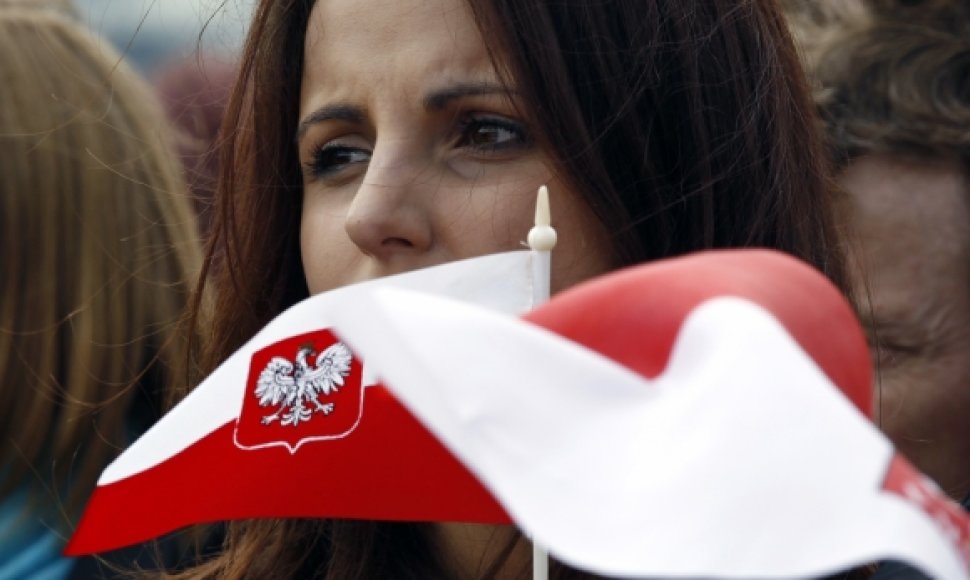Following the meeting, chairman of the local Lithuanian community Algirdas Vaicekauskas said that "there's a lack of tolerance in Poland and bad atmosphere for ethnic minorities is in formation."
"We expressed our opinion that we do not feel safe. There were attacks against Lithuanians and Lithuanian signs last year, and a monument inciting hatred is still in Berzniki, accusing us of the Panary events during the war. This is why we do not feel safe," Vaicekauskas told BNS.
"The Polish state treats us as an instrument to put pressure on Lithuania. The Punsk mayor was subjected to pressure earlier to reinstall bilingual location signs. We see that we are treated as some sort of instrument, we are becoming hostages to Lithuanian-Polish relations," Vaicekauskas said by phone following the meeting in Warsaw.
He added that issues regarding unfavorable education tendencies were also raised during the meeting.
The OSCE commissioner was earlier received by Polish Minister of Foreign Affairs Radoslaw Sikorski. Earlier this week, Vollebaek came to Vilnius where he met with Lithuanian officials.
Polish Lithuanians warned in a letter to the Lithuanian and Polish prime ministers last November that the situation of the Lithuanian ethnic minority in Poland was deteriorating. The number of Lithuanian schools was decreasing, basic needs to provide schools with textbooks were being ignored, and Lithuanian pupils were being discriminated against financially.
Last year, bilingual signs were smeared with paint in Punsk and two monuments for Lithuanian artists were vandalized.
The Lithuanian community is also concerned over the fact that new monuments are erected in Berzniki, Sejny, that incite conflicts between Polish and Lithuanian people and humiliate Lithuanian soldiers killed during the Polish-Lithuanian conflict in 1920 and buried in the local cemetery.
Polish Lithuanians also accused Sejny County authorities of breaching an informal agreement, in place since 1999 when Sejny County was established, that a Lithuanian national is appointed as deputy governor.
According to data by Lithuania's embassy in Poland, around 15,000 people of Lithuanian origin live in Poland, with the majority of them living in Sejny and Punsk near the Lithuanian-Polish border.












